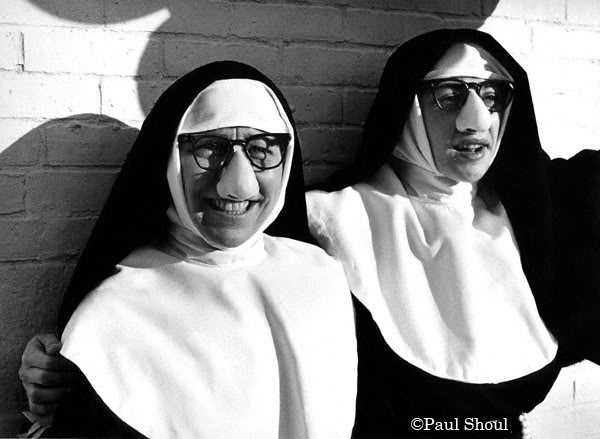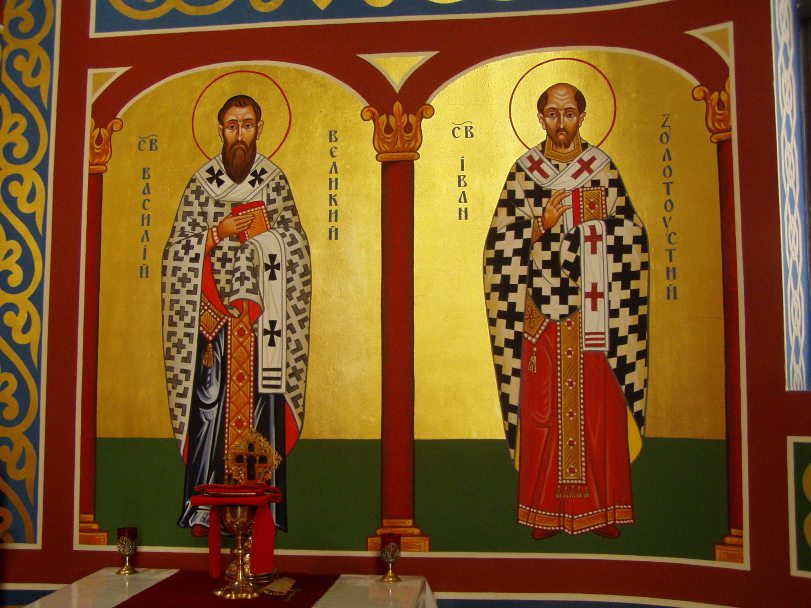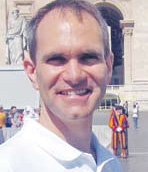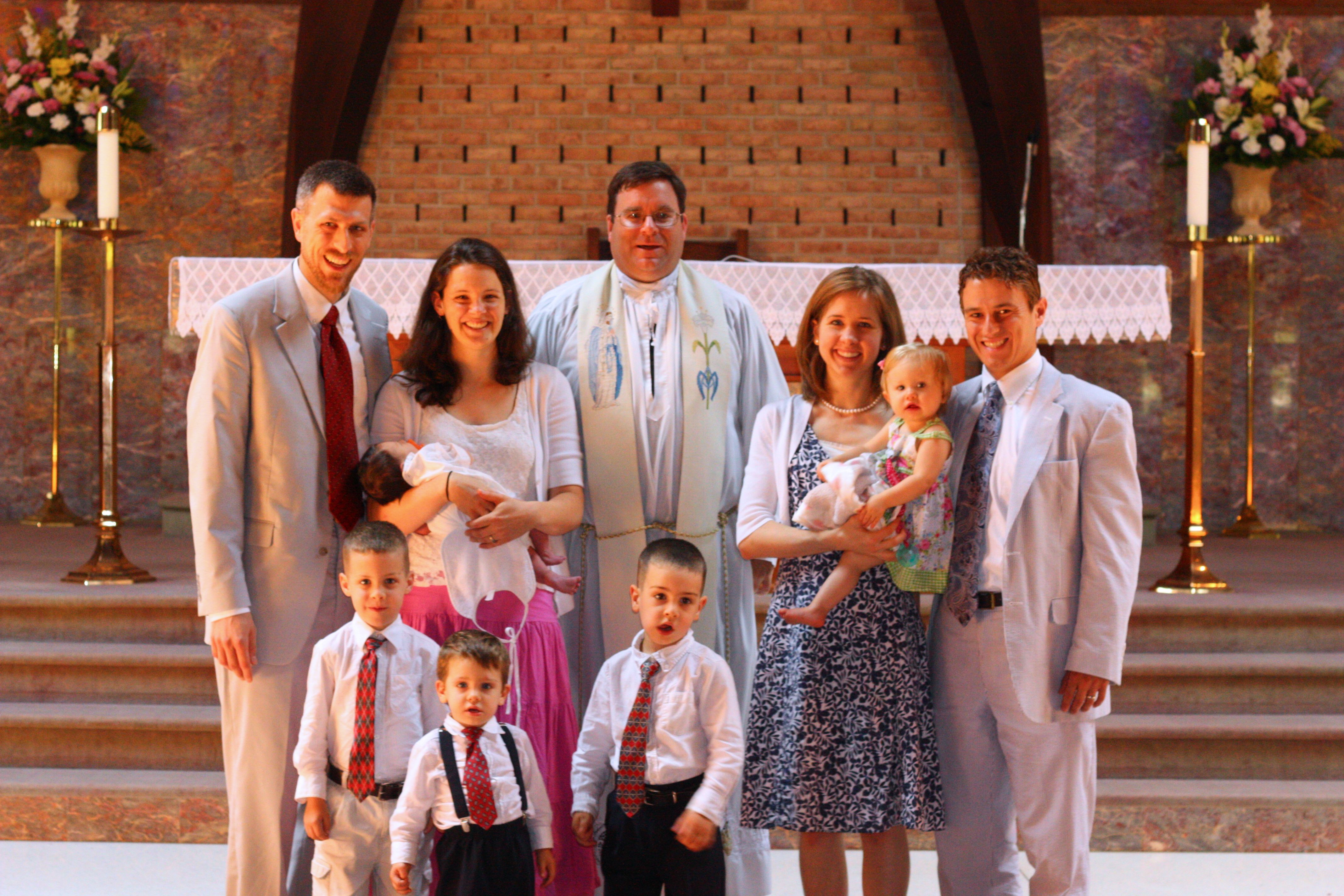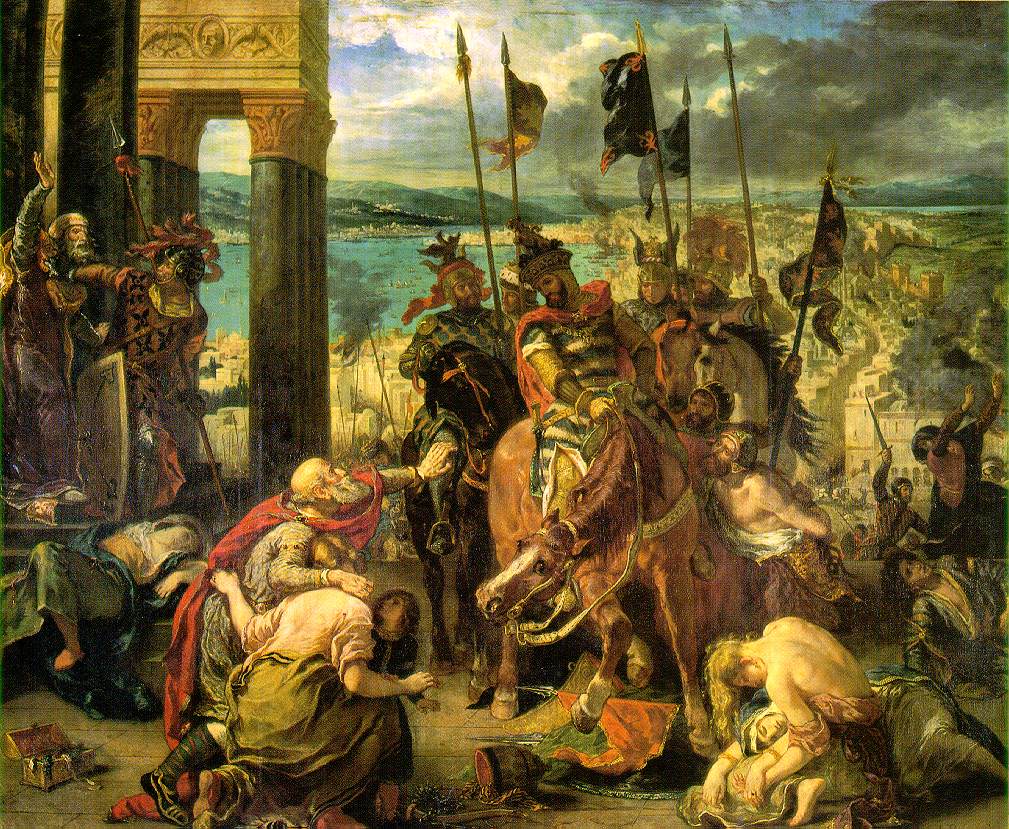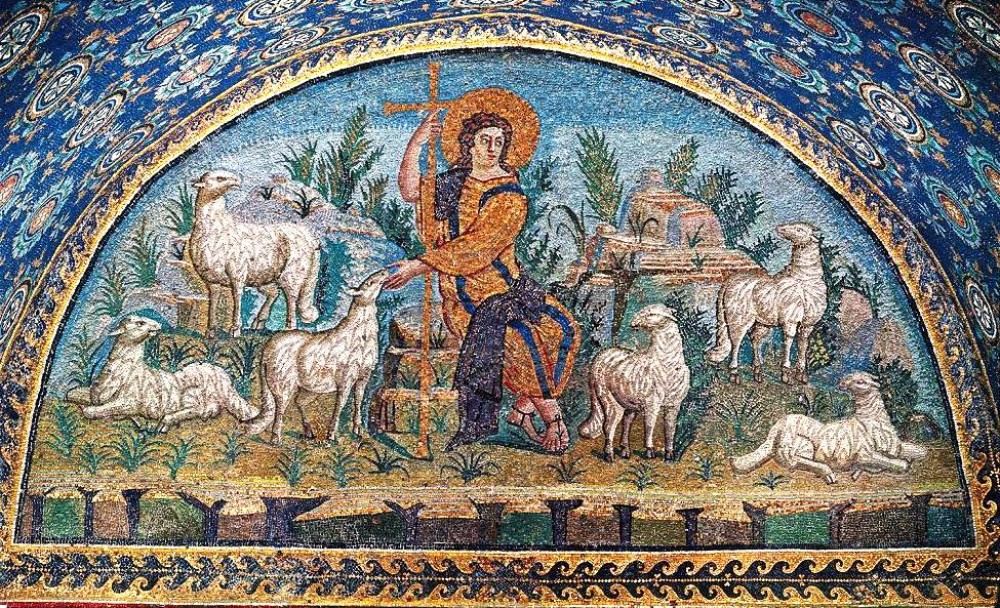-by Robert P. George, delivered at the National Catholic Prayer Breakfast, 5/13/14, Wash DC
http://www.princeton.edu/admission/whatsdistinctive/facultyprofiles/george/

Robert P. George, McCormick professor of jurisprudence at Princeton University and chair of the U.S. Commission on International Religious Freedom, delivers the “lay guest speaker” address at the 10th annual National Catholic Prayer Breakfast, Washington, D.C., May 13, 2014.
Ashamed of the Gospel?
“The days of socially acceptable Christianity are over. The days of comfortable Catholicism are past. It is no longer easy to be a faithful Christian, a good Catholic, an authentic witness to the truths of the Gospel. A price is demanded and must be paid. There are costs of discipleship-heavy costs, costs that are burdensome and painful to bear.
Of course, one can still safely identify oneself as a “Catholic,” and even be seen going to Mass. That is because the guardians of those norms of cultural orthodoxy that we have come to call “political correctness” do not assume that identifying as “Catholic” or going to Mass necessarily means that one actually believes what the Church teaches on issues such as marriage and sexual morality and the sanctity of human life.
And if one in fact does not believe what the Church teaches, or, for now at least, even if one does believe those teachings but is prepared to be completely silent about them, one is safe-one can still be a comfortable Catholic. In other words, a tame Catholic, a Catholic who is ashamed of the Gospel-or who is willing to act publicly as if he or she were ashamed-is still socially acceptable. But a Catholic who makes it clear that he or she is not ashamed is in for a rough go-he or she must be prepared to take risks and make sacrifices. “If,” Jesus said, “anyone wants to be my disciple, let him take up his cross and follow me.” We American Catholics, having become comfortable, had forgotten, or ignored, that timeless Gospel truth. There will be no ignoring it now.
The question we face
The question each of us today must face is this: Am I ashamed of the Gospel? And that question opens others: Am I prepared to pay the price that will be demanded if I refuse to be ashamed, if, in other words, I am prepared to give public witness to the massive politically incorrect truths of the Gospel, truths that the mandarins of an elite culture shaped by the dogmas of expressive individualism and me-generation liberalism do not wish to hear spoken? Or, put more simply, am I willing, or am I, in the end, unwilling, to take up my cross and follow Christ?
Powerful forces and currents in our society press us to be ashamed of the Gospel-ashamed of the good, ashamed of our faith’s teachings on the sanctity of human life in all stages and conditions, ashamed of our faith’s teachings on marriage as the conjugal union of husband and wife. These forces insist that the Church’s teachings are out of date, retrograde, insensitive, uncompassionate, illiberal, bigoted-even hateful. These currents bring pressure on all of us-and on young Catholics in particular-to yield to this insistence. They threaten us with consequences if we refuse to call what is good evil, and what is evil good. They command us to conform our thinking to their orthodoxy, or else say nothing at all.
Do you believe, as I believe, that every member of the human family, irrespective of age or size or stage of development or condition of dependency, is the bearer of inherent dignity and an equal right to life? Do you hold that the precious child in the womb, as a creature made in the very image and likeness of God, deserves respect and protection? Then, powerful people and institutions say, you are a misogynist-a hater of women, someone who poses a threat to people’s privacy, an enemy of women’s “reproductive freedom.” You ought to be ashamed!
Do you believe, as I believe, that the core social function of marriage is to unite a man and woman as husband and wife to be mother and father to children born of their union? Do you hold, as I hold, that the norms that shape marriage as a truly conjugal partnership are grounded in its procreative nature-its singular aptness for the project of child-rearing? Do you understand marriage as the uniquely comprehensive type of bond-comprehensive in that it unites spouses in a bodily way and not merely at the level of hearts and minds-that is oriented to and would naturally be fulfilled by their conceiving and rearing children together? Then these same forces say you are a homophobe, a bigot, someone who doesn’t believe in equality. You even represent a threat to people’s safety. You ought to be ashamed!
But, of course, what you believe, if you believe these things, is a crucial part of the Gospel. You believe the truth-in its fullness-about the dignity of the human person and the nature of marriage and sexual morality as proclaimed by the Church-our only secure source of understanding the Gospel message. So when you are invited to distance yourself from these teachings or go silent about them, when you are threatened with opprobrium or the loss of professional opportunities or social standing if you do not, you are being pressured to be ashamed of the Gospel-which means to give up faith in the Lordship of Christ and hope in the triumph of goodness, righteousness, and love in and through Him.
Heavy costs
To be a witness to the Gospel today is to make oneself a marked man or woman. It is to expose oneself to scorn and reproach. To unashamedly proclaim the Gospel in its fullness is to place in jeopardy one’s security, one’s personal aspirations and ambitions, the peace and tranquility one enjoys, one’s standing in polite society. One may in consequence of one’s public witness be discriminated against and denied educational opportunities and the prestigious credentials they may offer; one may lose valuable opportunities for employment and professional advancement; one may be excluded from worldly recognition and honors of various sorts; one’s witness may even cost one treasured friendships. It may produce familial discord and even alienation from family members. Yes, there are costs of discipleship-heavy costs.
There was a time, not long ago, when things were quite different….Biblical and natural law beliefs about morality were culturally normative; they were not challenges to cultural norms. But those days are gone. What was once normative is now regarded as heretical-the moral and cultural equivalent of treason. And so, here we are.
You see, for us, as for our faithful Evangelical friends, it is now Good Friday. The memory of Jesus’s triumphal entry into Jerusalem has faded. Yes, he had been greeted-and not long ago-by throngs of people waving palm branches and shouting “Hosanna to the Son of David.” He rode into the Jerusalem of Europe and the Jerusalem of the Americas and was proclaimed Lord and King. But all that is now in the past. Friday has come. The love affair with Jesus and his Gospel and his Church is over. Elite sectors of the cultures of Europe and North America no longer welcome his message. “Away with him,” they shout. “Give us Barabbas!”
The days of comfortable Catholicism are past
So for us there is no avoiding the question: Am I ashamed of the Gospel? Am I unwilling to stand with Christ by proclaiming His truths? Oh, things were easy on Palm Sunday. Standing with Jesus and His truths was the in thing to do. Everybody was shouting “Hosanna.” But now it’s Friday, and the days of acceptable Christianity are over. The days of comfortable Catholicism are past. Jesus is before Pilate. The crowds are shouting “crucify him.” The Lord is being led to Calvary. Jesus is being nailed to the cross.
And where are we? Where are you and I? Are we afraid to be known as his disciples? Are we ashamed of the Gospel?
Will we muster the strength, the courage, the faith to be like Mary the Mother of Jesus, and like John, the apostle whom Jesus loved, and stand faithfully at the foot of the cross? Or will we, like all the other disciples, flee in terror? Fearing to place in jeopardy the wealth we have piled up, the businesses we have built, the professional and social standing we have earned, the security and tranquility we enjoy, the opportunities for worldly advancement we cherish, the connections we have cultivated, the relationships we treasure, will we silently acquiesce to the destruction of innocent human lives or the demolition of marriage? Will we seek to “fit in,” to be accepted, to live comfortably in the new Babylon? If so, our silence will speak. Its words will be the words of Peter, warming himself by the fire: “Jesus the Nazorean? I tell you, I do not know the man.”
Perhaps I should make explicit what you have no doubt perceived as implicit in my remarks. The saving message of the Gospel of Jesus Christ includes, integrally, the teachings of His church on the profound and inherent dignity of the human person and the nature of marriage as a conjugal bond-a one-flesh union. The question of faith and fidelity that is put to us today is not in the form it was put to Peter-“surely you are you this man’s disciple”-it is, rather, do you stand for the sanctity of human life and the dignity of marriage as the union of husband and wife? These teachings are not the whole Gospel-Christianity requires much more than their affirmation. But they are integral to the Gospel-they are not optional or dispensable. To be an authentic witness to the Gospel is to proclaim these truths among the rest. The Gospel is, as St. John Paul the Great said, a Gospel of Life. And it is a Gospel of family life, too. And it is these integral dimensions of the Gospel that powerful cultural forces and currents today demand that we deny or suppress.
History is not our judge
These forces tell us that our defeat in the causes of marriage and human life are inevitable. They warn us that we are on the “wrong side of history.” They insist that we will be judged by future generations the way we today judge those who championed racial injustice in the Jim Crow South. But history does not have sides. It is an impersonal and contingent sequence of events, events that are determined in decisive ways by human deliberation, judgment, choice, and action. The future of marriage and of countless human lives can and will be determined by our judgments and choices-our willingness or unwillingness to bear faithful witness, our acts of courage or cowardice. Nor is history, or future generations, a judge invested with god-like powers to decide, much less dictate, who was right and who was wrong. The idea of a “judgment of history” is secularism’s vain, meaningless, hopeless, and pathetic attempt to devise a substitute for what the great Abrahamic traditions of faith know is the final judgment of Almighty God. History is not God. God is God. History is not our judge. God is our judge.
One day we will give an account of all we have done and failed to do. Let no one suppose that we will make this accounting to some impersonal sequence of events possessing no more power to judge than a golden calf or a carved and painted totem pole. It is before God-the God of truth, the Lord of history-that we will stand. And as we tremble in His presence it will be no use for any of us to claim that we did everything in our power to put ourselves on “the right side of history.”
One thing alone will matter: Was I a faithful witness to the Gospel? Did I do everything in my power to place myself on the side of truth? The One whose only begotten Son tells us that He, and He alone, is “the Way, the Truth, and the Life” will want to know from each of us whether we sought the truth with a pure and sincere heart, whether we sought to live by the truth authentically and with integrity, and-let me say this with maximum clarity-whether we stood up for the truth, speaking it out loud and in public, bearing the costs of discipleship that are inevitably imposed on faithful witnesses to truth by cultures that turn away from God and his law. Or were we ashamed of the Gospel?
The Gospel is true. The whole Gospel is true. Its teachings about life and marriage are true-even its hardest sayings, such as Christ’s clear teaching about the indissolubility of what God has united and about the adulterous nature of any sexual relation outside that bond.
“I do not know the man”
If we deny truths of the Gospel, we really are like Peter, avowing that “I do not know the man.” If we go silent about them, we really are like the other apostles, fleeing in fear. But when we proclaim the truths of the Gospel, we really do stand at the foot of the cross with Mary the Mother of Jesus and John the disciple whom Jesus loved. We show by our faithfulness that we are notashamed of the Gospel. We prove that we are truly Jesus’s disciples, willing to take up his cross and follow him-even to Calvary.
And we bear witness by our fidelity to the greatest truth of all, namely, that the story does not end at Golgotha. Evil and death do not triumph. Yes, it is Good Friday, but the One who became like us in all things but sin conquers death to redeem us from our transgressions and give us a full share in eternal life-the divine life of the most blessed Trinity. The cross cannot defeat Him. The sepulcher cannot hold Him. His heavenly Father will not abandon Him. The psalm that begins in despair, Eloi, Eloi lama sabachtani, ends in hope and joy. Easter is coming. The crucified Christ will be raised from the dead. The chains of sin will be broken. “Oh death, where is thy victory? Oh death, where is thy sting?”
I grew up as a Catholic in a Protestant culture. The Protestants of my boyhood were what we today call Evangelicals. In those days, the religious differences between us seemed vast, though today the personal and spiritual bonds we have formed in bearing common witness to marriage and the sanctity of human life have relativized, though, of course, not eliminated, those differences. We now know that Evangelical Protestants are truly our brothers and sisters in Christ-separated from us in certain ways, to be sure, but bound together with us nevertheless in spiritual fellowship. Growing up, I admired the strength of their faith, and their willingness openly to profess it. And I loved their hymns. One of the most familiar ones contains a vital message for us Catholics today. You will recognize the first verse:
On a hill faraway, stood an old rugged cross,
The emblem of suffering and shame;
I love that old cross, where the dearest and best,
For a world of lost sinners was slain.
And the chorus goes:
I will cherish the old rugged cross,
Till my trophies at last I lay down.
I will cling to the old rugged cross,
And exchange it someday for a crown.
Yes, there’s the story. Christ must endure the sufferings of Good Friday to fulfill His salvific mission. But Easter is coming. And we, who cherish His cross, and are willing to bear His suffering and shame, will share in His glorious resurrection. We who cling to that old rugged cross will exchange it someday for a crown.
And then comes the next verse, and how perfectly it captures the attitude we must adopt, the stance we must take, the witness we must give, in these times of trial if we are to be true disciples of Jesus:
To the old rugged cross, I will ever be true,
Its shame and reproach gladly bear,
Till he calls me someday, to my home far away,
Where forever his glory I’ll share.
Yes.
And I’ll cherish that old rugged cross,
Till my trophies at last I lay down.
I will cling to the old rugged cross,
And exchange it someday for a crown.
Yes, for us Catholics and all who seek to be faithful, it’s Good Friday. We are no longer acceptable. We can no longer be comfortable. It is for us a time of trial, a time of testing by adversity. But lest we fail the test, as perhaps many will do, let us remember that Easter is coming. Jesus will vanquish sin and death. We will experience fear, just as the apostles did-that is inevitable. Like Jesus himself in Gethsemane, we would prefer not to drink this cup. We would much rather be acceptable Christians, comfortable Catholics. But our trust in Him, our hope in His Resurrection, our faith in the sovereignty of His heavenly Father can conquer fear. By the grace of Almighty God, Easter is indeed coming. Do not be ashamed of the Gospel. Never be ashamed of the Gospel.”
Rom 12:1
Sinner, hypocrite, denier of my Lord that I am, pray for me.
I am always keen for new martyrs, starting w/myself. “the blood of the martyrs is the seed of the Church” (Apologeticus, Chapter 50, 197 AD), Quintus Septimus Florens Tertullian. Sometime after his conversion to the Christian faith, Tertullian left the Catholic Church in favor of Montanism.
Love,
Matthew



